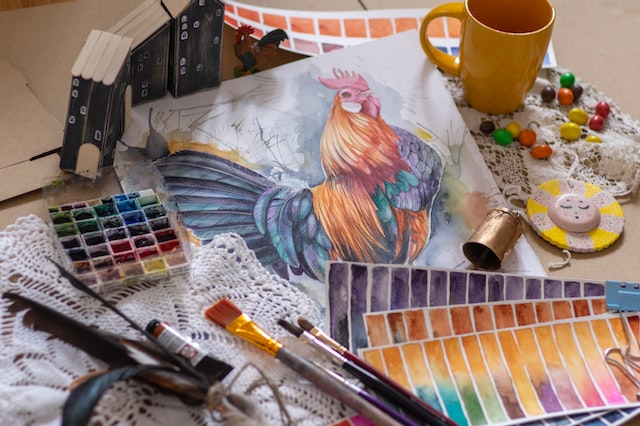ライフハックとしてではなく、英語学習にも極めて有用なのが、著名人が10分程度のプレゼンを行うTEDです。
TED Talksとは、あらゆる分野のエキスパートたちによるプレゼンテーションを無料で視聴できる動画配信サービスのことです。10年ほど前にサービスが開始されてから、政治、心理学、経済、日常生活などの幅広いコンテンツが視聴できることから人気を集めています。
RareJob English Lab
TEDは4000を超える膨大な数の動画があります。しかし慣れないうちは、動画の探し方や視聴のコツが分かりませんよね。この記事では、数多くのTEDを見てきた管理人(塩@saltandshio)が、心を揺さぶられたトークをあらすじと一緒にご紹介します。
ビジネス英会話を効率よく身につけたい方におすすめスクール
シェーン英会話
シェーンは1977年の創業以来、ネイティブ講師が英語を英語で教える「直接教授法」を採用しています。首都圏におけるスクール拠点数は、ネイティブ講師の英会話スクールでNo.1。駅から近いスクールが多いので通いやすく時間を有効に使えます。
スピークバディ パーソナルコーチング
1日1時間の短期集中トレーニングで、あなたの英語力向上をコーチが全力でサポートします。あなたの英語の世界が、劇的に変わります。
エミリー・ワプニック: 天職が見つからない人がいるのはどうしてでしょう?
大人になったら何になりたい?子供の時に聞かれた言葉に、大人になったいまもとらわれていませんか?これからの人生で、ずっと何か一つのことだけをしていたいかどうか、わからない人。それはあなた一人ではありません。むしろ、これからの世界は、さまざまなことに関心を持ち、いろんな仕事をする人たちが求められているのです(約12分半)。
[PR] 薬剤師に選ばれる転職サイト!薬剤師の転職&派遣ならファルマスタッフ「大人になったら何になりたい?」が大人を苦しめる
エミリー・ワプニックは、幼い頃からいろんなことに興味がありました。高校生の時には、国語も数学も美術も好きで、自分でウェブサイトまで作るほどでした。パンクバンドに所属し、ギターをかき鳴らしていたこともあります。
高校を卒業したあと、エミリー・ワプニックは自分の行動にある傾向があることに気が付きます。
ある分野に興味を抱いたら、一も二もなく飛び付いてのめり込み、情熱もお金も時間も費やすのですが、ある程度上達したあとはどこかで飽きてしまうのです。
[PR] アパレル業界に特化した派遣・求人情報サイト♪【アパレル派遣なび】熱中して飽きるを繰り返す、自分にうんざり
しかし、飽きがきてもしばらくの間はどうにか続けます。なぜなら、そのために費やした気持ちや時間やお金を考えるともったいないと思うからです。しかし、やがて『これ以上、チャレンジすることはない』という思いのほうが勝ってしまい、さいごは放り投げてしまいます。
そうして、またほかのことに興味を持つと、最初のうちは「見つけた!これだ!」と思い熱心に取り組むのですが、やはり最後は飽きて放り投げてしまうのです。この行動が、エミリー・ワプニックを二つの理由で苦しめます。
- 自分の行っている様々なことを、どのようにキャリアに結び付けられるのか。一つのことに特化するということは、他の事にはたとえ興味を持ったとしても、諦めなければいけないということなのか。
- 一つの事をやり通せない自分は、どこかに欠陥があるのではないか。無意識で何かに専念する事を怖がっており、じつは成功を恐れており、そのため自分で妨害しているのではないか。
このタイプなので、めちゃくちゃ気持ちがわかります
ここで、エミリー・ワプニックは最初の質問を思い出してほしいと言います。「大人になったらなにになりたい?」という質問のこたえを、いったいどれほどの大人が気にしているでしょか。本当は誰も気にしていないのです。この質問は、子供に夢を持つことを推奨していますが、すべての夢を持ち続けなさいとは勧めていないことに、気が付かなくてはいけません。
[PR]シッター常駐「子どもと一緒に通えるFammママwebデザイナースクール」特化した職業だけが素晴らしい?
子供は、なにか特化した職業にしか目にいきません。このことが大人になってから自分を苦しめることになるのですが、多趣味な人ほどたったひとつの思い込みを打破しなければいけません。
焦点の絞られた人生は、社会で美化されます。それは、宿命とか天職と呼ばれます。そもそも、人はこの世に優れたものを一つ持って生まれてきており、生きている間にそれがなにかを探し当て、見つけたらそれに人生を捧げて、この世で果たさなければいけません……というわけではないのです。
多趣味・多芸なのは、あなたの立派なスキルでありキャリアになるのです。 そもそも、社会全体が単一のあり様に合意する事は不可能なのですから。
[PR]人事としてのキャリアアップ【人事プロパートナーズ】多趣味・多芸が、これからを生き抜く力になる
トークのなかで、エミリー・ワプニックはマルチタスクを持った人の事を『マルチ・ポテンシャライト(multipotentialite:multi, potential, and ite.)』と呼んでいますが、その特徴は大きく三つあります。
- 複数のアイデアを統合できる
- 学習意欲があり、吸収力がある
- 適応能力が高い
ひとつずつ見てみましょう。
複数のアイデアを統合できる
マルチ・ポテンシャライトの人は、2つ以上の分野を組み合わせることを容易に出来ます。それは、多くの事を学んだことにより様々な知識を持っているからです。いろいろな引き出しを持っているからこそ、斬新で面白い仕事を生み出せるのです。
つまり、様々な経歴を持つマルチ・ポテンシャライトは、多くの交差点(知識)に容易にアクセスできるだけでなく、それを組み合わせることも可能な人材なのです。
学習意欲があり、吸収力がある
マルチ・ポテンシャライトの人は、なにかに興味を持つと貪欲にそれを手当たりしだい吸収します。さらに、様々なことに挑戦している(首を突っ込んでいる)ため、初心者であることにも慣れています。
なぜなら、マルチ・ポテンシャライトの人は初心者だった事が多い人たちだからです。ですので、新しい事を始めたり、居心地の良い所から外に足を踏み出すのも怖がりません。さらに、習得した多くの技能は違った分野でも応用できますし、過去に取得した技能も新しい分野に持ち込むので、1から物事を始める事はほとんどありません。
だんだんと、マルチ・ポテンシャライトの強みがわかっていただけたでしょうか。
適応能力が高い
さいごに、マルチ・ポテンシャライトの人はどんな場面に遭遇しても、それに合わせられると能力が極めて高い人たちです。様々なことに挑戦し、経験したことが役立っているといってもいいでしょう。
この才能は、世界の経済が激変する中で、成長の真っ只中にある市場のニーズを満たすことができる人材といっても過言ではありません。なぜなら、現在の社会に溢れる複雑で多次元的な問題に取り組むには、創造的でかつ型にはまらない人材がもっとも必要とされているからです。
[PR]検定試験合格者累計140万人!スマホ対応☆国家資格ほか資格取得ならSMART合格対策講座まとめ:好奇心の赴くままに、内なる情熱を大切にしよう
ここで、誤解しないでいただきたいのは、スペシャリストが劣っているというわけではありません。実際に最高のチームは、スペシャリストとマルチ・ポテンシャライトのペアです。
スペシャリストがアイデアを奥深く追求して実行段階に移し、マルチ・ポテンシャライトがそのプロジェクトに幅広い知識を持ち込めば、素晴らしいパートナーシップが発揮されるでしょう。
私たちは人生やキャリアを、それぞれの個性に応じて追求するべきです。ですが、悲しいことにマルチ・ポテンシャライトは、多くの場合スペシャリストになれと言われます。そうした言葉を投げかけられることによって、マルチ・ポテンシャライトは最初に述べたような負の感情におちいってしまうのです。
エミリー・ワプニックは、このトークを聞いて一つの事を学んでほしいと聴衆に語りかけます。
あなたが真のスペシャリストなら、それを全うしてください。それがあなたの最高の仕事となります。
しかしこの会場にいらっしゃる、マルチ・ポテンシャライトの皆さん。この12分間でそうと悟ったあなたも含めて、内に秘めた情熱を大切にし、好奇心を追って、いくつもの穴に入り込み、その好奇心の交差点を追求してください。
内に秘める情熱を大切にすることが、幸せな本物の人生につながります。
もっと大切なのは マルチ・ポテンシャライトの皆さん 世界が私たちを必要としています
If you’re a specialist at heart, then by all means, specialize. That is where you’ll do your best work.
But to the multipotentialites in the room, including those of you who may have just realized in the last 12 minutes that you are one — to you I say: embrace your many passions. Follow your curiosity down those rabbit holes. Explore your intersections.
Embracing our inner wiring leads to a happier, more authentic life.
And perhaps more importantly — multipotentialites, the world needs us.
あなたの好きを、大切にしましょう。それが、きっとあなたの人生を輝かせてくれるでしょう。
英語全文
Raise your hand if you’ve ever been asked the question “What do you want to be when you grow up?”
Now if you had to guess, how old would you say you were when you were first asked this question? You can just hold up fingers. Three. Five. Three. Five. Five. OK. Now, raise your hand if the question “What do you want to be when you grow up?” has ever caused you any anxiety.
<全文を読む>▼クリック▼
I’m someone who’s never been able to answer the question “What do you want to be when you grow up?”
See, the problem wasn’t that I didn’t have any interests — it’s that I had too many. In high school, I liked English and math and art and I built websites and I played guitar in a punk band called Frustrated Telephone Operator. Maybe you’ve heard of us.
This continued after high school, and at a certain point, I began to notice this pattern in myself where I would become interested in an area and I would dive in, become all-consumed, and I’d get to be pretty good at whatever it was, and then I would hit this point where I’d start to get bored. And usually I would try and persist anyway, because I had already devoted so much time and energy and sometimes money into this field. But eventually this sense of boredom, this feeling of, like, yeah, I got this, this isn’t challenging anymore — it would get to be too much. And I would have to let it go.
But then I would become interested in something else, something totally unrelated, and I would dive into that, and become all-consumed, and I’d be like, “Yes! I found my thing,” and then I would hit this point again where I’d start to get bored. And eventually, I would let it go. But then I would discover something new and totally different, and I would dive into that.
This pattern caused me a lot of anxiety, for two reasons. The first was that I wasn’t sure how I was going to turn any of this into a career. I thought that I would eventually have to pick one thing, deny all of my other passions, and just resign myself to being bored. The other reason it caused me so much anxiety was a little bit more personal. I worried that there was something wrong with this, and something wrong with me for being unable to stick with anything. I worried that I was afraid of commitment, or that I was scattered, or that I was self-sabotaging, afraid of my own success.
If you can relate to my story and to these feelings, I’d like you to ask yourself a question that I wish I had asked myself back then. Ask yourself where you learned to assign the meaning of wrong or abnormal to doing many things. I’ll tell you where you learned it: you learned it from the culture.
We are first asked the question “What do you want to be when you grow up?” when we’re about five years old. And the truth is that no one really cares what you say when you’re that age.
It’s considered an innocuous question, posed to little kids to elicit cute replies, like, “I want to be an astronaut,” or “I want to be a ballerina,” or “I want to be a pirate.” Insert Halloween costume here.
But this question gets asked of us again and again as we get older in various forms — for instance, high school students might get asked what major they’re going to pick in college. And at some point, “What do you want to be when you grow up?” goes from being the cute exercise it once was to the thing that keeps us up at night. Why?
See, while this question inspires kids to dream about what they could be, it does not inspire them to dream about all that they could be. In fact, it does just the opposite, because when someone asks you what you want to be, you can’t reply with 20 different things, though well-meaning adults will likely chuckle and be like, “Oh, how cute, but you can’t be a violin maker and a psychologist. You have to choose.”
This is Dr. Bob Childs —
and he’s a luthier and psychotherapist. And this is Amy Ng, a magazine editor turned illustrator, entrepreneur, teacher and creative director. But most kids don’t hear about people like this. All they hear is that they’re going to have to choose. But it’s more than that. The notion of the narrowly focused life is highly romanticized in our culture. It’s this idea of destiny or the one true calling, the idea that we each have one great thing we are meant to do during our time on this earth, and you need to figure out what that thing is and devote your life to it.
But what if you’re someone who isn’t wired this way? What if there are a lot of different subjects that you’re curious about, and many different things you want to do? Well, there is no room for someone like you in this framework. And so you might feel alone. You might feel like you don’t have a purpose. And you might feel like there’s something wrong with you. There’s nothing wrong with you. What you are is a multipotentialite.
A multipotentialite is someone with many interests and creative pursuits. It’s a mouthful to say. It might help if you break it up into three parts: multi, potential, and ite. You can also use one of the other terms that connote the same idea, such as polymath, the Renaissance person. Actually, during the Renaissance period, it was considered the ideal to be well-versed in multiple disciplines. Barbara Sher refers to us as “scanners.” Use whichever term you like, or invent your own. I have to say I find it sort of fitting that as a community, we can not agree on a single identity.
It’s easy to see your multipotentiality as a limitation or an affliction that you need to overcome. But what I’ve learned through speaking with people and writing about these ideas on my website, is that there are some tremendous strengths to being this way. Here are three multipotentialite super powers.
One: idea synthesis. That is, combining two or more fields and creating something new at the intersection. Sha Hwang and Rachel Binx drew from their shared interests in cartography, data visualization, travel, mathematics and design, when they founded Meshu. Meshu is a company that creates custom geographically-inspired jewelry. Sha and Rachel came up with this unique idea not despite, but because of their eclectic mix of skills and experiences. Innovation happens at the intersections. That’s where the new ideas come from. And multipotentialites, with all of their backgrounds, are able to access a lot of these points of intersection.
The second multipotentialite superpower is rapid learning. When multipotentialites become interested in something, we go hard. We observe everything we can get our hands on. We’re also used to being beginners, because we’ve been beginners so many times in the past, and this means that we’re less afraid of trying new things and stepping out of our comfort zones. What’s more, many skills are transferable across disciplines, and we bring everything we’ve learned to every new area we pursue, so we’re rarely starting from scratch.
Nora Dunn is a full-time traveler and freelance writer. As a child concert pianist, she honed an incredible ability to develop muscle memory. Now, she’s the fastest typist she knows.
Before becoming a writer, Nora was a financial planner. She had to learn the finer mechanics of sales when she was starting her practice, and this skill now helps her write compelling pitches to editors. It is rarely a waste of time to pursue something you’re drawn to, even if you end up quitting. You might apply that knowledge in a different field entirely, in a way that you couldn’t have anticipated.
The third multipotentialite superpower is adaptability; that is, the ability to morph into whatever you need to be in a given situation. Abe Cajudo is sometimes a video director, sometimes a web designer, sometimes a Kickstarter consultant, sometimes a teacher, and sometimes, apparently, James Bond.
He’s valuable because he does good work. He’s even more valuable because he can take on various roles, depending on his clients’ needs. Fast Company magazine identified adaptability as the single most important skill to develop in order to thrive in the 21st century. The economic world is changing so quickly and unpredictably that it is the individuals and organizations that can pivot in order to meet the needs of the market that are really going to thrive.
Idea synthesis, rapid learning and adaptability: three skills that multipotentialites are very adept at, and three skills that they might lose if pressured to narrow their focus. As a society, we have a vested interest in encouraging multipotentialites to be themselves. We have a lot of complex, multidimensional problems in the world right now, and we need creative, out-of-the-box thinkers to tackle them.
Now, let’s say that you are, in your heart, a specialist. You came out of the womb knowing you wanted to be a pediatric neurosurgeon. Don’t worry — there’s nothing wrong with you, either.
In fact, some of the best teams are comprised of a specialist and multipotentialite paired together. The specialist can dive in deep and implement ideas, while the multipotentialite brings a breadth of knowledge to the project. It’s a beautiful partnership. But we should all be designing lives and careers that are aligned with how we’re wired. And sadly, multipotentialites are largely being encouraged simply to be more like their specialist peers.
So with that said, if there is one thing you take away from this talk, I hope that it is this: embrace your inner wiring, whatever that may be. If you’re a specialist at heart, then by all means, specialize. That is where you’ll do your best work. But to the multipotentialites in the room, including those of you who may have just realized in the last 12 minutes that you are one —
to you I say: embrace your many passions. Follow your curiosity down those rabbit holes. Explore your intersections. Embracing our inner wiring leads to a happier, more authentic life. And perhaps more importantly — multipotentialites, the world needs us.
Thank you.
<閉じる>

\ ほかにも気になるトークが満載! /









